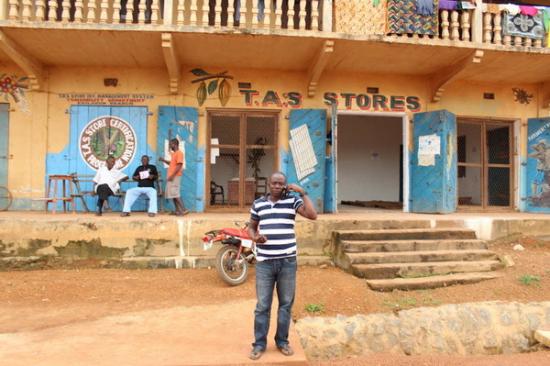The deadly virus overwhelmed Sierra Leone's key agricultural district, leaving thousands of farms, and their farmers, abandoned. The impact of that lost harvest has shaken the economy — and its food supply.
CHRISTIAN SCIENCE MONITOR by Ryan Lenora Brown Aug. 16, 2015
Kailahun, Sierra Leone —...Today, the Ebola virus appears to be in retreat. Massive tented treatment centers built by international donors stand vacant and ghostly across the countryside, unnecessary to cope with the single-digit numbers of new cases recorded in recent weeks. Schools, closed for nearly nine months, have reopened. On weekend mornings, Freetown’s Atlantic Ocean beaches are once again thronged with joggers, pick-up soccer games, and informal aerobics classes, as fears fade of passing Ebola through physical contact.
 Lahai Momoh, a buying agent for cacao in the eastern Sierra Leonean town of Kenema, seen here talking on his cellphone in August 2015, says 2014 was the worst year of his career due to the country's Ebola outbreak.
Lahai Momoh, a buying agent for cacao in the eastern Sierra Leonean town of Kenema, seen here talking on his cellphone in August 2015, says 2014 was the worst year of his career due to the country's Ebola outbreak.
Recent Comments